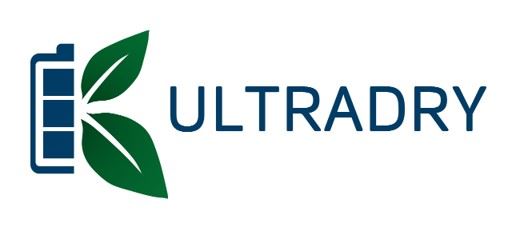Batteries play a key role in the green transition to solve the global climate crisis, for example by enabling zero-emission transport (e.g. electric vehicles and ferries) and by storing the energy from intermittent renewable sources. The global demand for batteries is expected to skyrocket the next ten years, which raises the necessity for the corresponding increase in battery production to be as sustainable as possible.
Battery electrodes are typically made by mixing the battery materials in a solvent and casting a thin layer of this wet slurry on a metal foil current collector. Before the electrode layers can be assembled into a working battery, however, it is critical that all the solvent is removed so that the electrodes are completely dry. This drying process is expensive because it is energy intensive to power drying ovens that are tens of meters long. Also, the solvents that are typically used for making cathodes are harmful, toxic and polluting, which further complicates the process and increases the cost. For the last few years, alternative solvent-free methods for making battery electrodes have gained more and more attention. Such dry processes have proved to be quite complex and there is a lack of fundamental understanding of how the different steps in the processes interact to influence the final properties of the electrode. In UltraDry, SINTEF will investigate dry processing methods for making battery electrodes with the aim of building fundamental understanding within the field and ultimately improve the processes. Additionally, the proposed dry processing methods often require fluorine-rich binders, so SINTEF will also investigate the possibility of using binders with lower fluorine content.
UltraDry is a European collaborative project (m-era.net) where Warsaw Technical University (WUT, Poland) and the research institute IREC (Spain) are partners. WUT will focus on developing new electrolyte salt additives with lower fluorine content and performing the testing of the developed electrodes and electrolytes, while IREC will perform techno-economic and environmental life cycle assessments. SINTEF’s budget is on approximately 5 MNOK.


